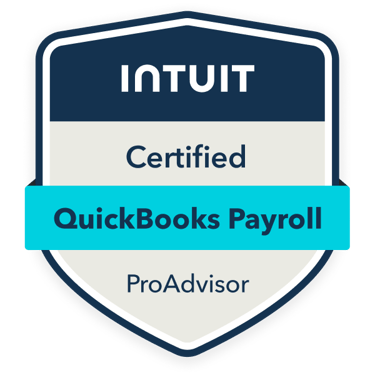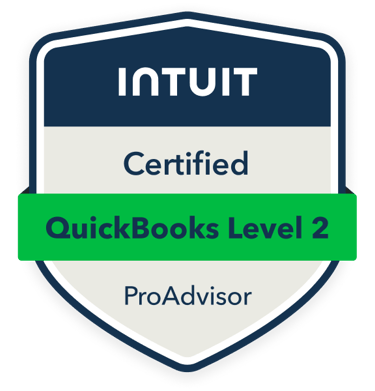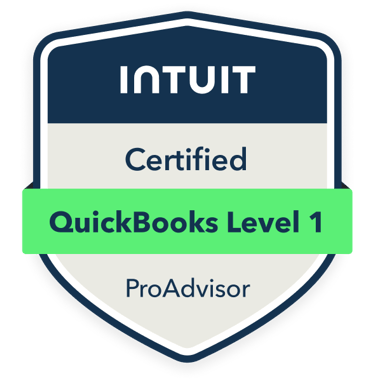DIY Bookkeeping
7 Potential Hazards with DIY Bookkeeping
6/4/20253 min read


7 Reasons Why DIY Bookkeeping Might Be Costing You More Than You Think
As a small business owner, the idea of "doing it yourself" often sounds appealing. It's a way to save money, maintain control, and learn new skills. And when it comes to bookkeeping, many entrepreneurs consider tackling it themselves. After all, with so many user-friendly software options available, how hard can it be?
While the DIY approach can seem like a smart financial move on the surface, it often comes with hidden costs and significant risks. What you save in accounting fees, you might pay for in errors, penalties, and lost opportunities.
Here are seven potential hazards of DIY bookkeeping that every business owner should consider:
1. The Peril of Inaccurate Record-Keeping
This is the granddaddy of all DIY bookkeeping hazards. Without proper accounting knowledge, it's incredibly easy to make simple data entry errors, miscategorize expenses (e.g., confusing a business meal with a personal one), or miss transactions altogether. These seemingly minor mistakes can quickly snowball, leading to:
A distorted financial picture: You won't know your true profitability or cash flow.
Difficulty in making informed decisions: How can you strategize if your data is wrong?
A nightmare at tax time: Discrepancies will inevitably lead to headaches and potential delays.
2. Missing Crucial Tax Deadlines & Compliance Woes
Tax laws are a labyrinth of complexity, constantly evolving, and varying by state and even locality. Unless you're a tax professional, staying on top of every regulation, deduction, and filing deadline is a monumental task. DIY bookkeepers often fall victim to:
Missed deadlines: Leading to costly penalties and interest charges.
Incorrect tax calculations: Resulting in overpayments or, worse, underpayments that trigger audits.
Unawareness of tax changes: Meaning you miss out on new deductions or accidentally violate new rules.
The IRS and state tax authorities are not lenient with "I didn't know."
3. The Hidden Cost of Your Time (Opportunity Cost)
As a business owner, your time is your most valuable asset. Every hour you spend hunched over spreadsheets or reconciling bank accounts is an hour you're not spending on activities that directly grow your business. Think about it:
Could you be landing new clients?
Developing innovative products or services?
Refining your marketing strategy?
The money you save on a bookkeeper might be far less than the revenue you could have generated by focusing on your core competencies.
4. Flawed Financial Decision-Making
Your financial records are the backbone of your business strategy. If those records are inaccurate or incomplete, any decision you make based on them will be flawed. This can manifest as:
Overspending: Not realizing you're low on cash until it's too late.
Under-budgeting: For future projects or necessary expenses.
Missed growth opportunities: Not identifying areas where you could invest more profitably.
Cash flow crises: Unexpectedly running out of funds.
You can't steer your ship effectively if you don't know where you are on the map.
5. Overpaying Taxes Due to Missed Deductions
Professional bookkeepers and accountants are experts at identifying every legitimate deduction and tax credit available to your business. They stay updated on the intricacies of the tax code, specifically to save you money. A DIY approach, conversely, almost guarantees you'll overlook numerous opportunities to reduce your taxable income. This means:
You're paying more taxes than legally required.
You're leaving money on the table that could be reinvested into your business.
6. The Stress and Burnout Factor
Let's be honest: bookkeeping isn't everyone's passion. For many, it's a tedious, anxiety-inducing chore. Juggling the demands of running a business with the meticulous and often complex requirements of accurate bookkeeping can lead to significant stress and burnout. The constant worry about making mistakes, meeting deadlines, and understanding confusing regulations can take a serious toll on your mental well-being, impacting your overall productivity and enjoyment of your business.
7. Inadequate Use of Accounting Software & Reconciliation Errors
While modern accounting software is invaluable, it's merely a tool. Knowing how to use the software effectively requires a fundamental understanding of accounting principles. Simply plugging in numbers doesn't guarantee accuracy. A common pitfall is neglecting regular bank reconciliation – comparing your internal records with your bank statements. This oversight can lead to:
Undetected errors or omissions.
Missed fraudulent transactions.
A completely inaccurate picture of your actual cash flow.
Is DIY Bookkeeping Right for You?
For the absolute smallest of businesses with minimal transactions, DIY bookkeeping is manageable in the early stages. However, as your business grows, so does the complexity of your finances.
Before committing to DIY bookkeeping, consider weighing these potential hazards against the perceived cost savings. Investing in a qualified bookkeeper or accountant isn't just an expense; it's an investment in the accuracy, compliance, and long-term financial health of your business. It frees you up to do what you do best: grow your company.





